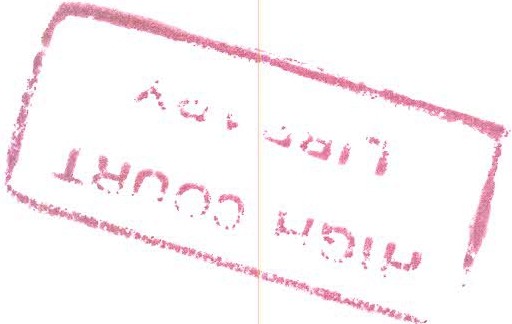

![]()
PRINCIPAL REGISTRY
CIVIL CAUSE NUMBER 471 OF 2013
BETWEEN:
IREEN CHASWEKA (A MINOR suing through her mother
And next friend FLORA CHASWEKA) PLAINTIFF
AND
BRIAN CHIGONEKA
PRIME INSURANCE COMPANY LIMITED
1st DEFENDANT
2nd DEFENDANT
Coram: JUSTICE M.A. TEMBO,
Chijere, Counsel for the Plaintiff
Tandwe, Counsel for the Defendants
Kakhobwe, Official Court Interpreter
JUDGMENT
This is this court's judgment following a trial of this matter on the plaintiff’s claim for damages for personal injuries suffered by the plaintiff when the motor vehicle driven by the 1st defendant and insured by the 2nd defendant hit the plaintiff due to the alleged negligence of the driver of the said vehicle. The defendants denied the allegation of negligence and the 2nd defendant put the plaintiff to strict proof that it was the insurer. The matter went to trial and the plaintiff’s mother herself testified as the only witness for the plaintiff. The defendants did not bring any witnesses.
1

The facts of this matter are not complicated. On 25th March 2013 the plaintiff was with her mother and she was crossing the road from left to right at Viphya along the Limbe-Thyolo road. In the process, the minibus driven by the 1st defendant hit her causing her injury. This is what the plaintiff’s mother stated in her sworn statement although she tried to change at the hearing and stated that the plaintiff was actually hit whilst she was standing on the side of the road.
This Court is satisfied that the plaintiff herein was hit as she was trying to cross the road. The plaintiff who is a minor was not held by the hand by the mother and it is more probable than not that she indeed was trying to cross the road the time she was hit.
The plaintiff’s mother testified that at the time the minibus herein was speeding and seemed to be in a competition or race with another minibus. That aspect was not disputed by the defendants.
In the circumstances of this case both parties cited the correct law on negligence in road traffic cases. That law is summarized in the case decided by the Supreme Court of Appeal and which is reported as Southern Bottlers Limited and another v Commercial Union Assurance Company plc [2004] MLR 364 (SCA). In that report of the case the Supreme Court of Appeal said, at page 370-371, that
It is indeed trite law that an action founded upon negligence is based on the conception of a duty of care which one person owes to the other person. Respecting a driver of a motor vehicle, in Banda and others v ADMARC and another [1990] 13 MLR 59 and 63, Banda J as he then was, put that duty as follows:
"A driver of a motor vehicle owes a duty of care to other road users not to cause damage to persons, vehicles and property of anyone on or adjoining the road. He must use reasonable care which an ordinary skilful driver would have exercised under all the circumstances. A reasonably skilful driver has been defined as one who avoids excessive speed, keeps a good look - out, observes traffic signs and signals."
On his part, Mtegha J, as he then was, in Kachingwe v Mangwiro Transport Motorways Company Limited 11 MLR 362 and 367, put it as follows:
"Perhaps it would be prudent here to state briefly the duty of care which a driver of a motor vehicle owes to property adjacent to the road and to other road users. I cannot do better than to Quote the words of Lord Macmillan in Hay [or Bourhill] v Young [1943] AC 92 when he said at l04
2
'What duty then was incumbent on him? ... The duty of a driver is to use proper care not to cause injury to persons on the highway or in premises adjoining the highway ... Proper care connotes avoidance of excessive speed, keeping a good look - out, observing traffic rules and signals and so on ... There is no absolute standard of what is reasonable and probable. It must depend on circumstances and must always be a question of degree.'
It is a duty of a person who drives a motor vehicle on a highway to use reasonable care to avoid causing damage to persons and other vehicles or property on or adjoining the road. It has been further stated that reasonable care means care which an ordinary skilful driver could have exercised under all the circumstances."
Lastly, but not least, we would like to refer to the applicable law, on the point, as was enunciated by this Court in Yanu Yanu Company Limited v Mbewe [PB] and Mbewe [MM] 11 MLR 405, 408-410:
"We feel that learned Counsel has misunderstood the law. It is accurately stated in Nance v British Colombia Elec Ry Co Limited 12] per Viscount Simon. He states [1951] AC at 611:
'... The statement that when negligence is alleged as the basis of an actionable wrong, a necessary ingredient in the conception is the existence of a duty owed by the defendant to the plaintiff to take care, is, of course, indubitably correct. But when contributory negligence is set up as a defence, its existence does not depend on any duty owed by the injured party to the party sued, and all that is necessary to establish such a defence is to prove to the satisfaction of the jury that the injured party did not in his own interest take reasonable care of himself and contributed, by this want of care, to his own injury. For when contributory negligence is set up as shield against the obligation to satisfy the whole of the plaintiff s claim, the principle involved is that, where a man is part author of his own injury, he cannot call on the other party to compensate him in full.'
This Court has to determine whether in the circumstances of the matter at hand the 1st defendant driver exercised the skill required of him in driving the motor vehicle herein to avoid hitting the minor herein. The plaintiff submitted that the 1st defendant's driver was negligent because he failed to exercise reasonable care by speeding on a road that was busy with pedestrians.
This Court is satisfied that the 151 defendant was driving at such a speed as not to be able to properly control his vehicle in the event that pedestrians wanted to cross the road as the minor herein tried to. This is the case particularly considering that the plaintiff's mother indicated to this Court that the 1st defendant was in some sort of competition with the other minibus.
3
The defendants contended that the actions of the minor in trying to cross the road as she did amounted to contributory negligence. However, the plaintiff rightly submitted that a very young child like the plaintiff herein has been held to be incapable of contributory negligence. See Dilla v Rajani 11 MLR 113. The partial defence of contributory negligence is therefore unavailable to the defendants.
The only matter that remains to be considered is the 2nd defendant's defence that it never insured the motor vehicle herein. This issue is related to the matter of admissibility of a police report that the plaintiff’s mother tendered in evidence herein to prove that the 2nd defendant was the insurer.
The plaintiff relied on the case of Jimu v NICO General Insurance Company Limited civil cause number 984 of 2007 (High Court) (unreported) where it was held that a police report is admissible when tendered by someone who did not author it since it is a public document. This Court has had occasion to consider the decision in the Jimu case and arrived at a different conclusion that a police report cannot be accepted in such circumstances to convey the truth of its contents. See Bauleni and other v Siku Transport and another personal injury cause number 299 of 2010 (High Court) (unreported).
In the foregoing circumstances there is no proof that the 2nd defendant was the insurer of the minibus that was driven by the 1st defendant. The police officer never appeared in Court to testify as to whether indeed the insurer was the 2nd defendant herein.
In the final analysis, the plaintiff s claim succeeds only as against the 1st defendant and fails with respect to the 2nd defendant. Damages are awarded to the plaintiff as against the 1st defendant and the same shall be assessed on a date to be appointed by the Registrar.
Costs normally follow the event and shall therefore be for the successful plaintiff as against the 1st defendant only.
Made in open court at Blantyre this 23rd June 2016.
___________
M.A. Tembo
JUDGE
4